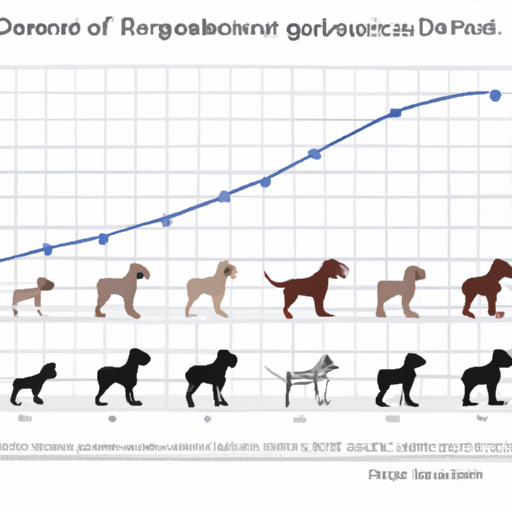Dogs, our loyal companions, grow at a pace that can seem both incredibly fast and painstakingly slow. But when does this growth really conclude? Let’s dive deeper into this topic.
Understanding The Growth Cycle of Dogs
Understanding the growth cycle of dogs is crucial. It’s a fascinating journey that takes us through different stages of their life. Typically, the growth cycle can be divided into:
- The Neonatal Stage (0-2 weeks): Puppies are blind and deaf. They start to crawl.
- The Transitional Stage (2-4 weeks): Puppies start to see, hear, and walk.
- The Socialization Stage (4-12 weeks): Puppies start interacting with humans and other animals.
- The Juvenile Stage (3-6 months): Puppies grow rapidly, both physically and intellectually.
- The Adolescent Stage (6-18 months): Puppies reach sexual maturity but are still growing.
- Adulthood (18 months onwards): Growth slows down and eventually stops.
Factors Influencing The Growth of Dogs
Several factors can influence when your dog will become fully grown. Here are a few:
- Breed: Smaller breeds generally mature faster than larger ones.
- Nutrition: A balanced diet can contribute to healthy growth.
- Exercise: Regular exercise promotes muscle development.
- Health: Existing health issues can affect growth.
Typical Growth Timeline For Various Breeds
Different breeds have diverse growth timelines. The following table illustrates this:
| Breed Category | Typical Time to Full Growth |
|---|---|
| Small Breeds | 6-12 months |
| Medium Breeds | 12-16 months |
| Large Breeds | Up to 24 months or more |
How to Determine if Your Dog is Fully Grown
The best way to determine if your dog is fully grown is through veterinary examinations. Your vet can check your dog’s physical development and conduct tests to ensure proper growth. Signs that your dog is fully grown can include:
- Stabilization of weight and height
- Slowed down or cessation of growth in paws
- Development of adult teeth
FAQ’s
Q: What if my dog is a mixed breed?
A: Mixed breed dogs might take an average of the parent breeds’ typical growth times. Consult your vet for the best estimate.
Q: How can I ensure my dog is growing properly?
A: Regular vet check-ups, a balanced diet, and ample exercise can help ensure healthy growth.
Q: Does neutering/spaying affect growth?
A: Some studies suggest it can slightly delay physical maturity, but the effects are usually minimal.
Q: Are there health risks if my dog grows too fast or slow?
A: Abnormal growth can indicate potential health issues. Always consult your vet if you have concerns.
Understanding when and how dogs grow helps us as caregivers to provide the best possible care. Every dog’s journey to maturity is unique and filled with moments of joy and challenges. As they grow, their bond with us deepens, making the journey worthwhile.



